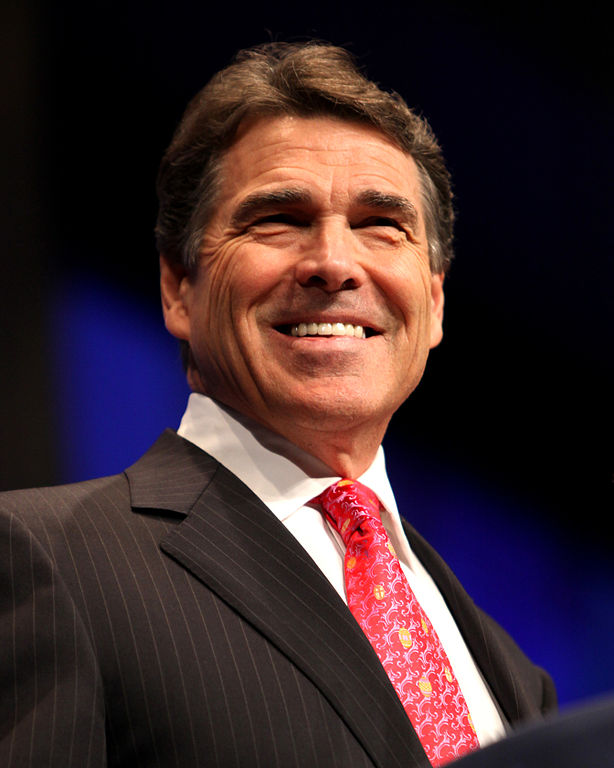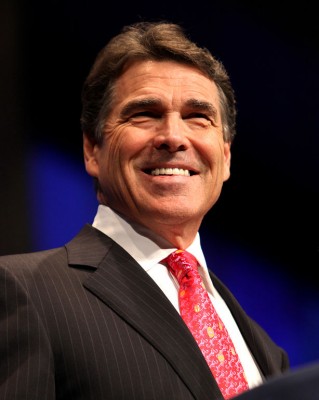
What Are Presidential Candidate Rick Perry’s Religious Beliefs?
- By Alison Lesley --
- 09 Jun 2015 --

Republican candidate Rick Perry has been guided by his Christian beliefs throughout his political career. How would those beliefs shape his presidency?
Former Texas Governor Rick Perry launched his presidential campaign on Thursday in Addison, Texas. This is his second bid for the Republican nomination and eventually the White House. Rick Perry has been a Christian since he was born, although his denominational affiliations have evolved over the years.
Perry grew up in Paint Creek, a small Texas town, as a member of the United Methodist Church. In 2010 he and his family began attending Lake Hill Church, a non-denominational evangelical megachurch in western Travis Country. In 2014, while still a governor, he was re-baptized in Little Rock Creek near the city of Independence. According to Perry’s spokesperson “Gov. Perry has a deep and abiding faith in God,” adding that “like many people of faith, the governor wished to reaffirm his commitment in a way that holds great personal meaning.”
Religion has played a significant part in Perry’s actions as a governor and presidential candidate over the years. In 2011 he organised a prayer rally over America’s “moral crisis” in Houston, in which 30,000 people participated. The event helped solidify his status as a Christian politician. Perry has also stated that he feels he became Texas’ longest-serving governor, and now a two-time presidential candidate at the direction of God.
In 2011 Perry issued a controversial gubernatorial proclamation for the “Days of Prayer for Rain in the State of Texas”. It was a three-day period, during which Perry asked that Texans pray for an end to the drought that Texas was suffering from. Texas has in recent days experienced severe floods which have killed 27 people. Conservative broadcaster Glenn Beck thinks the floods are God’s answer to Perry’s prayer proclamation several years ago, agreeing with his co-host Stu Burguiere that climate change couldn’t have caused both the drought and the floods.


















